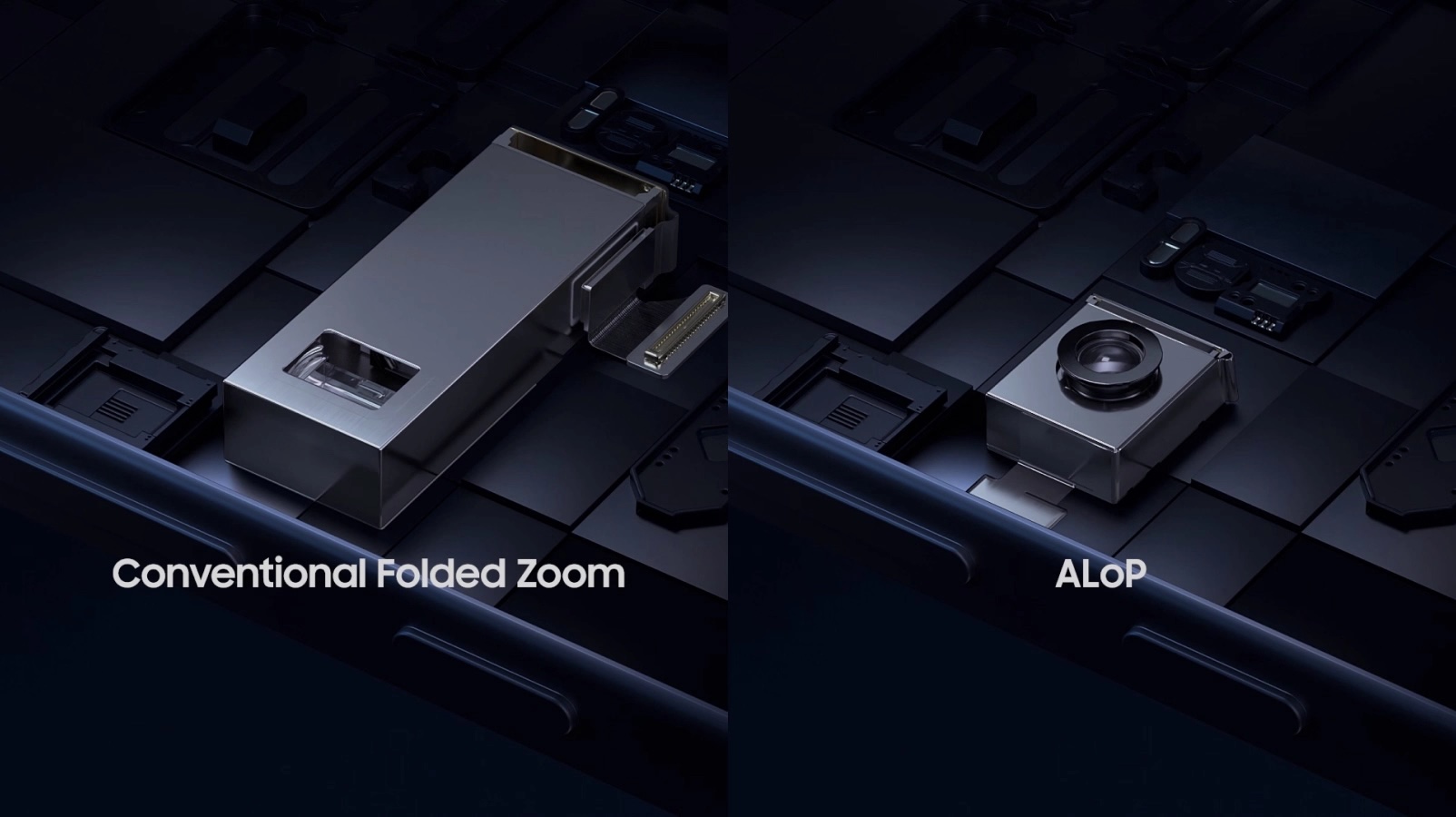
Samsung's new ALoP camera system shrinks the size of periscope modules and offers much improved low-light shooting.
It also opens up some interesting possibilities for future Galaxy phones.
One of the biggest innovations in smartphone camera tech is the periscope lens, which delivers high zoom levels without taking up half your phone. And now Samsung has come up with another breakthrough, which could mean a serious upgrade for Samsung Galaxy phones in the near future.
The new system is called ALoP, short for All Lenses on Prism. Samsung Semiconductor's announcement, spotted by Redditors and reported by Android Authority, shows how ALoP enables it to rearrange the structure of a periscope camera.
Instead of putting the lenses between the prism and the image sensor, as periscope lenses currently do, ALoP stacks them ahead of the prism instead. And that's good.

What ALoP promises for your phone
With an ALoP configuration, Samsung says you'll get much better low light performance – an aperture of f/2.58, which would mean significantly better shooting with lower noise in poorer lighting conditions.
It's also shorter – 22% shorter, Samsung says. Although, when it's built into a camera module, the difference won't be quite so dramatic. That said, Oppo's similar "inverted" periscope in the Find X8 is 33% smaller overall.
But one of the really interesting things about ALoP is how much it reduces the size of the entire camera section. Where a conventional periscope setup is almost square and roughly double the width of the camera lenses, the same lenses in an ALoP configuration are in a much narrower module that's barely wider than the lens.
That's interesting for two reasons. First, it could mean that Samsung could make even wider apertures because it's got more space to play with. And second, it could mean multiple periscopes in a single device.
There's still a lot we don't know about ALoP, and it probably won't be ready in time for the Samsung Galaxy S25 in early 2025. But it demonstrates that innovation in smartphone cameras is still ongoing, and that's exciting news for phone snappers and photo pros.







